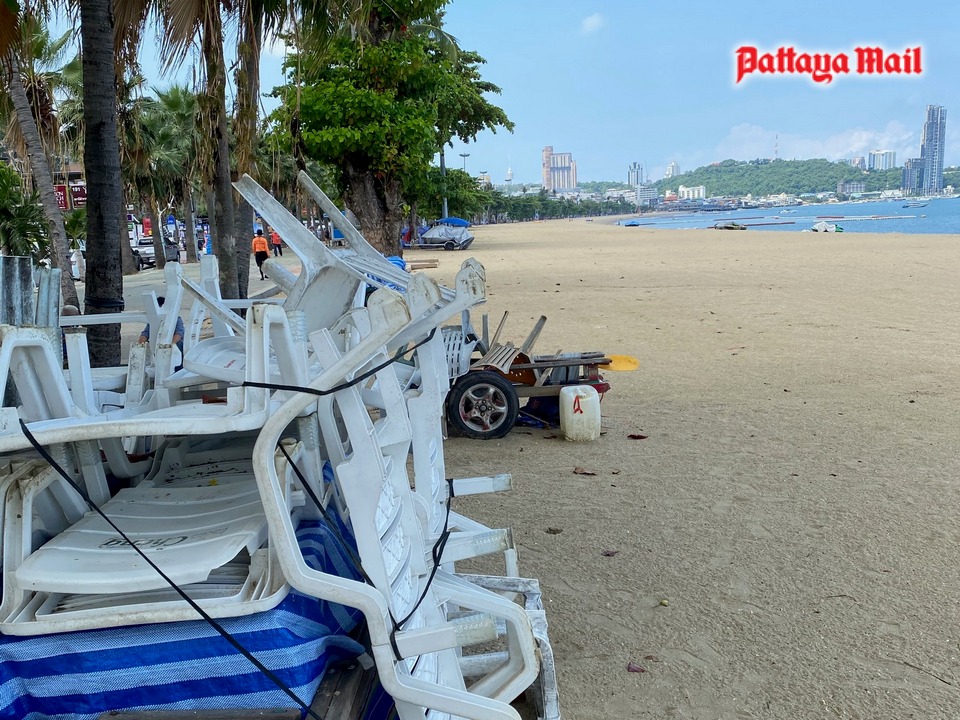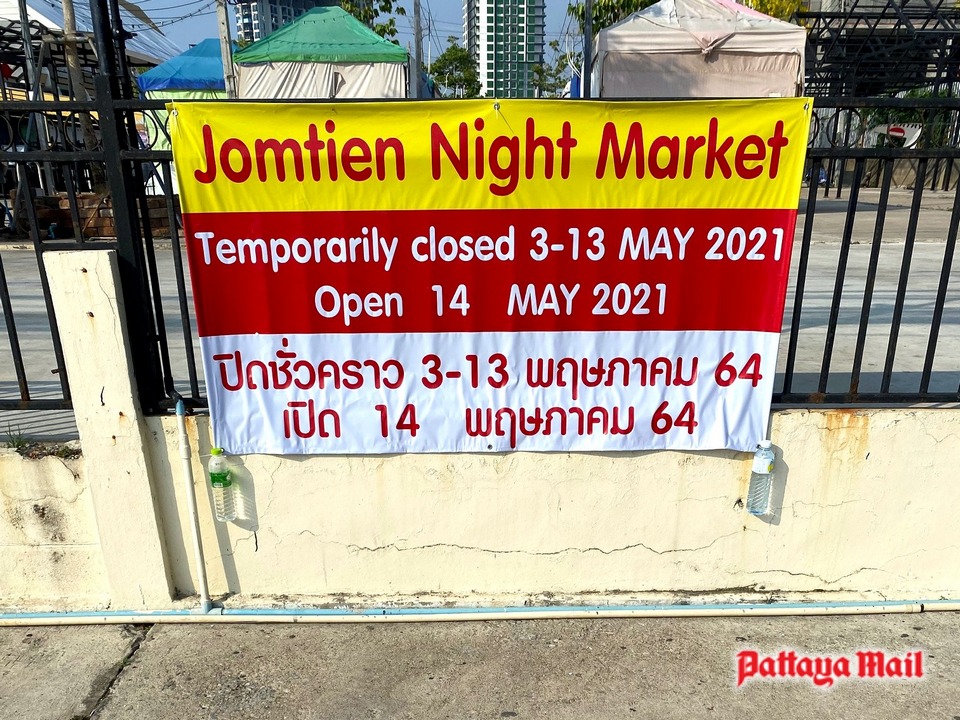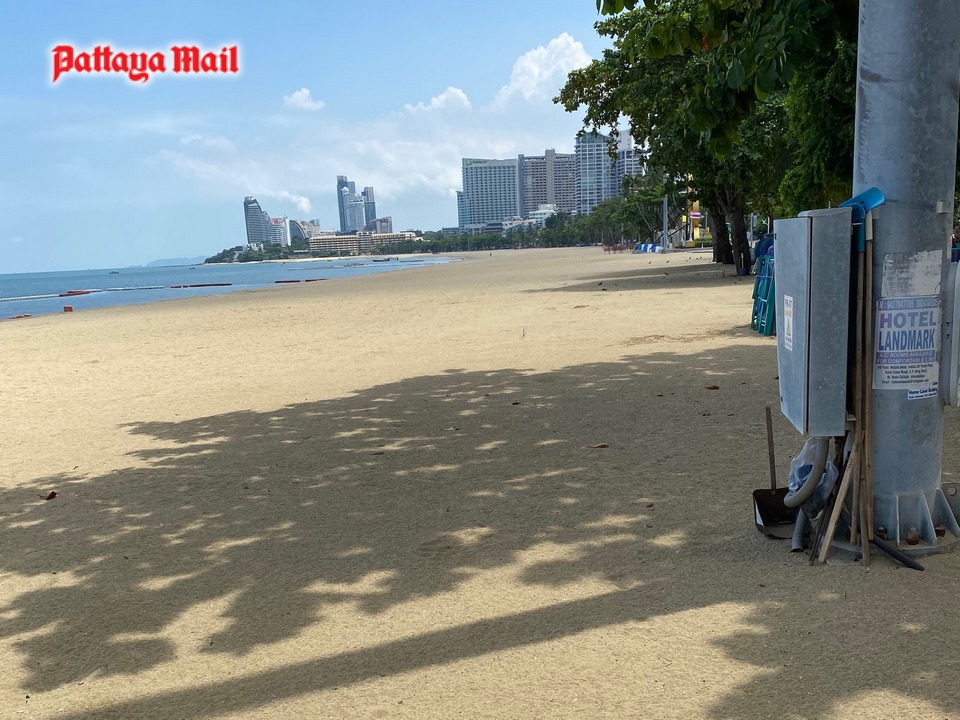
Parts of Chonburi province are now experiencing restrictions not formally announced by governmental or provincial edict. All deckchairs, umbrellas and facilities were suddenly removed from Pattaya and Jomtien beaches this week without any publicized instructions. Khun Oy, who holds a deckchair concession licence, said she received a phone call from another colleague who claimed to have had an earlier call from City Hall.
Although walking on the beach or adjoining pathway and swimming in the sea are not illegal at the present time, a spokesperson for the official hotline 1337 said that group gatherings on beaches could well lead to infection. Outdoor areas such as beaches, parks and reservoirs were open for exercise but not for socializing. The latest informal policy turn has certainly been successful as the beaches are well and truly deserted.

In another unexpected move, several markets have closed temporarily as Greater Pattaya area virus infections remain stubbornly high, topping around 150 daily. Rompho market has closed a large part of its indoor retail section, whilst Jomtien Night Market has ceased all trading until May 13. City Hall said that such closures were a matter for the market authorities, but added that the alternative was very strict screening of customers and monitored entry and exit points.
On the travel front, Chonburi theoretically does not require permission to leave or enter the province. In practice, precautions are being stepped up. Drivers leaving the province are required to have written permission from a district office or village leader. Returning vehicles are subject to random inspection with temperature checks of occupants. Mobile testing centers and a roadblock facility near Laem Chabang are operational, but not 24/7 and some vehicles are being waved through.

Lert Bangprapart, a Banglamung-based health worker, said that the ambiguities were a response to the national decision to allow local authorities a lot of discretion in handling the pandemic. Although Chonburi is a red-zone province, there is still a lot of room for local variation. He quoted the national rule that a gathering of more than 20 people required permission, but commented that nobody knew for sure what meetings with fewer people could go ahead without notifying City Hall or the police.
It appears that the government’s policy of refusing to declare a national lockdown, but to allow soft curfews and other restrictions at local level, has led to policymaking on the hoof. What happens now depends on the pesky virus. If infections and deaths continue to grow, pressures will mount on Prime Minister Chanyut Chan-o-Cha to use his emergency powers. These could include a national overnight curfew, a ban on regional travel and closure of stores and retail outlets selling “non-essential” items. A ban on alcohol sales in supermarkets is thought unlikely as it leads to black-market practices and hoarding without actually curbing the virus.
© Barry Kenyon – Pattaya Mail 2021 No contents of www.pattayamail.com may be reproduced in whole or in part in any manner without the permission of the copyright owner.





